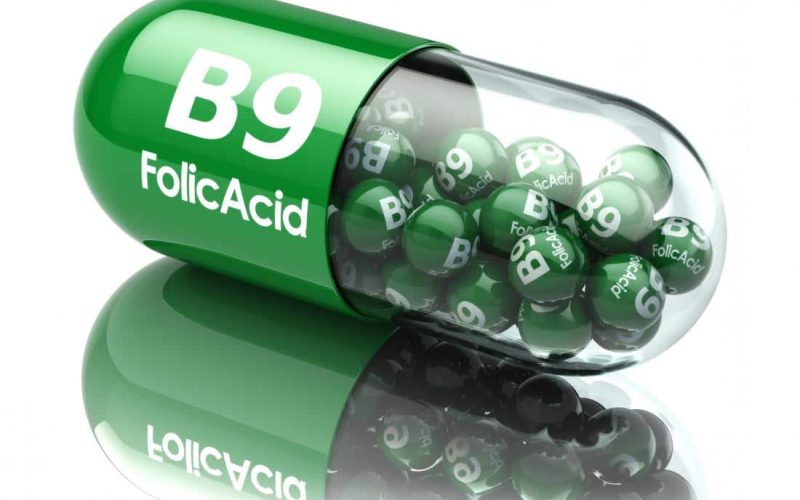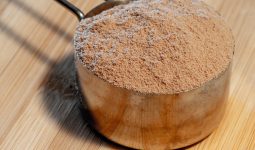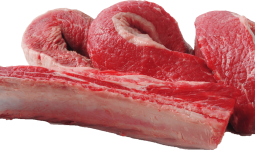Folate, also known as folacin and vitamin B9, is a water-soluble vitamin that occurs naturally. Folic acid is the manufactured form of folate, which is converted in the body and used in food fortification and as a dietary supplement.
Folate is an essential vitamin necessary for the production of DNA and RNA. It is also used to metabolize amino acid, a process required in cell division. Since humans are not capable of producing folate, it is necessary to consume it in a diet.
Folic acid must, however, be converted to the active form of vitamin B9 before the body can process it. This process requires several enzymes, one of which is known as MTHFR. Sometimes, genetic mutations may cause the MTHFR enzymes to be less effective at processing folic acid.
Some people, due to genetic mutations, may find it difficult to convert folic acid to 5-MRTHF. This may lead to the build-up of folic acid in the body, which can have harmful health effects, which include impaired brain function, weak immunity, and increased growth of already existing cancer cells.
Folic acid is an essential supplement for pregnant women as it promotes cell growth of the fetus and reduces the risk of neural tube defects. A low level of folic acid in the early stages of pregnancy is said to be the cause of more than half of infants born with neural tube defects.
Folic acid may also reduce the risk of early labor and preeclampsia – a pregnancy complication characterized by high blood pressure, and damage to another organ system, usually the kidneys and livers.
It is recommended women of childbearing age take the supplement to protect against congenital disabilities that may occur before the woman is aware that she is pregnant.
Insufficient consumption of folate can lead to folate deficiency, which may result in macrocytic anemia – a condition where the red blood cells become abnormally large.
Symptoms of this disease may include exhaustion, shortness of breath, heart palpitations, and changes in the color of the skin or hair.
Recommended Intake
According to the Food and Nutrition Board (FNB) at the National Academies of Sciences, Engineering, and Medicine, the recommended daily allowance (RDA) of folate is different for people of different ages, as follows:
- For Infants between 0 to 6 months: 65 mcg
- For 7 to 12 months: 80 mcg
- For children 1 to 3 years: 150 mcg
- 4 to 8 years: 200 mcg
- 9 to 13 years: 300 mcg
- Over 14 years: 400 mcg
- For pregnant women: 600 mcg
- For lactating women: 500 mcg
An increased recommended intake of folate during pregnancy and breastfeeding is to fuel rapid growth and help prevent neural tube defects in the unborn child.
Folate deficiency occurs when there is a lack of folic acid in the blood. These are commonly caused by an inadequate diet, excess alcohol intake, and difficulties in absorbing foods that are fortified with folate.
Taking folate supplement in the active or reduced form of L-methyl folate (5-MTHF) may help to make sure that the body able to receive and better process folic acid. The doctors may tailor folate intake to individual health needs.
Folic acid supplements help to ensure that vulnerable individuals and those who need the supplement more can receive enough. Furthermore, increasing the intake of food rich in folate is essential as these foods generally also provide plenty of other nutrients that all act together to support good health.
Women who want to become pregnant are advised to obtain 400 micrograms (mcg) per day of folic acid from dietary supplements in addition to the folate present in the diet.
Safety Concerns
Due to folate being a water-soluble vitamin, and the ease at which it is removed from the body via urine, the risk of toxicity of the nutrient is low.
However, an issue that has been associated with a high dose of folic acid is its making effects on the diagnosis of anemia due to a lack of vitamin B12.
Excess intake of folic acid may also lead to or worsen neuropathy in people who are deficient in vitamin B12.
Which foods are rich in folate?
The ability of the body to process, absorb, utilize, and retain folate differs among foods and is difficult to measure.
There are about 150 different forms of folate, and about 50-90 percent can occur during cooking, storing, or processing. Green vegetables, legumes, and liver are the best sources of folate.
The following are examples of sources of folate:
- Asparagus
- Beef liver
- Lentils
- Beans
- Spinach
- Lettuce
- Avocado
- Egg yolk
- Banana
- Mushrooms
- Broccoli
- Beef
- Liver
- Oranges
- Crab
The United States Food and Drug Administration (FDA) and the Canadian government began requiring that manufacturers fortified certain foods in 1998. These included enriched bread, flours, rice, cornmeal, cereals, pasta, and other grain products.





